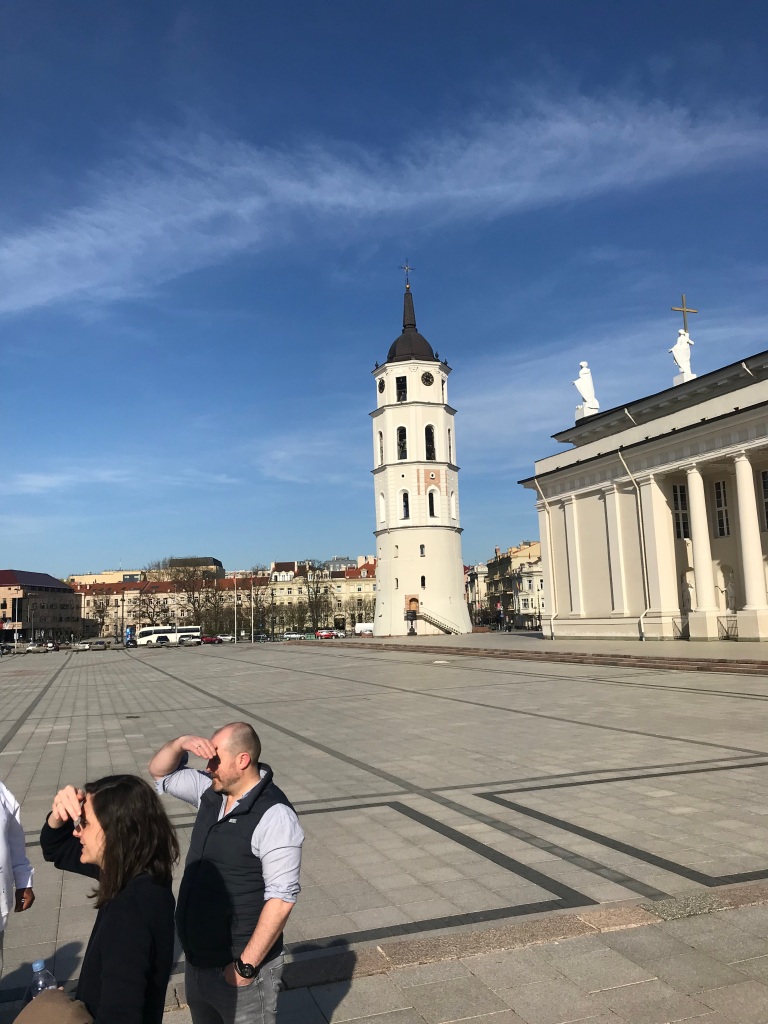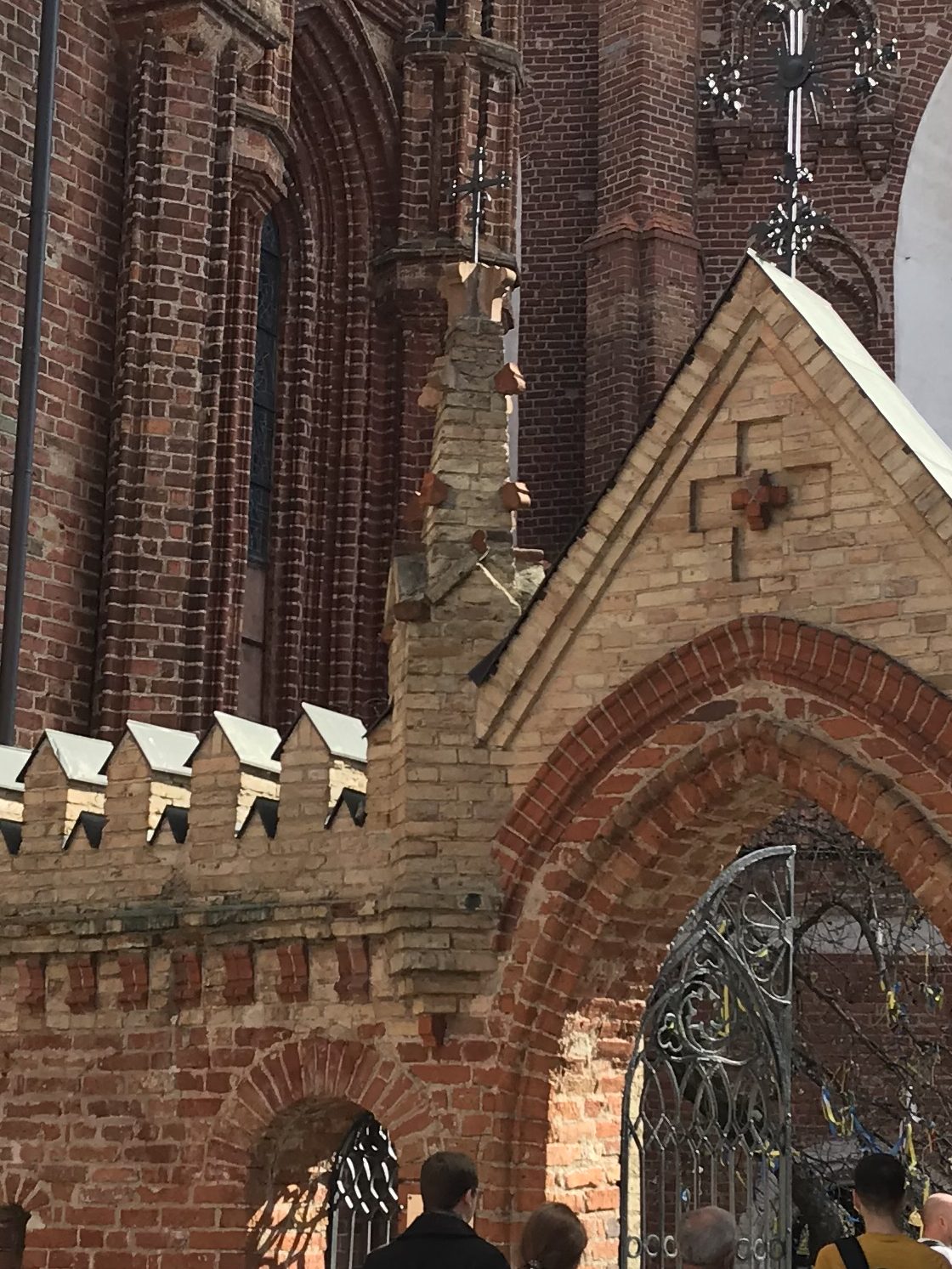Months ago, I had planned to post something about my ruminations about German politics. After many revisions, I never finished it, since I felt that it was still too incoherent. I put it aside and then I was traveling in April and in May… here is an updated, hopefully a more coherent, version about my perceptions about being a European. As I had written more than a year ago (see Post #14 The Road to Dual Citizenship: A New Identity?) when I became a German citizen, I was so excited to become a European; now that I have been for more than a year and half it is indeed incredibly exhilarating and rewarding. It is, however, also sadly frustrating.
First, what makes it exhilarating and rewarding:
My work with EuroClio, the European Association of History Educators, is satisfying, enjoyable, and pleasantly challenging. In April I attended my second Annual Conference in Vilnius, Lithuania (last year conferences took me to Bologna, Italy, and Bilbao, Spain; two places that had been high on my list to visit!), where I spent a few days learning about the history and culture of Vilnius, a city that I may not have otherwise explored and yet found to be interesting.
Here are three images of Vilnius:
1. Cathedral Square: View of the Bell Tower:



3. St. Anne’s Church
During the time that I was at the conference I spent many fascinating hours interacting with teachers from different European cities and countries, which led to enlightening conversations about history, teaching, and living in different countries. It also led to an opportunity to facilitate a workshop with a group of German teachers in Rostock at the end of the summer.
This spring I have also been teaching an online course about Historiana, EuroClio’s online platform, with a Dutch teacher trainer, coordinated by the Italian professional director. Participants included educators from Greece, Malta, and Slovenia. It had been a fascinating and challenging process to find common languages– we used English (yes, they understood my American accent!) and, as importantly, we needed to find ways to clarify what we meant in terms of pedagogy and how one teaches about the past. Additionally, I have been working on another project in which I supervised two graduate students – one from Turkey and one from Ireland —
At this personal and professional level, I am indeed thrilled how well this European experiment works. Much of what I read corroborates this view; I can recommend two books about the subject: Gert Mak, The Dream of Europe: Travels in the Twenty-First Century translated from the Dutch by Liz Waters (London: Harvill, 2021) and Timothy Garton Ash, Homelands: A Personal History of Europe (London: Bodley Head, 2023). Mak’s book greatly resonated with me. After all I happily see myself as European and yet he ends in a depressing note about an unfulfilled dream. Yet, is it? As I know, cross-cultural contact is great and the divisions of the past are smaller than ever. In all of his thought-provoking writings, Garton Ash focuses on such contact; in this book he looks critically over the history of the Union by choosing examples from his vast travels over the years and, while he raises critical points about the future, given Brexit, the divisions, and the ability of the Hungarian and Polish governments to get around the rule of law, as well as the divisions around asylum; still, he is ultimately more hopeful than Mak.
So, what is frustrating?
At the political transnational level I have serious concerns about how well this Union functions. Reading and hearing about differences over crucial issues – including a recent so-called compromise about the right to asylum, lack of progress on dealing with climate change, the war in Ukraine, and responding to Hungary’s and Poland’s blatant limitations on the rule of law and on LGBTQ+ rights — is frustrating and discouraging. For those of us, like myself, who take European values seriously embrace the idea that others should too. As a progressive Jewish gay man with a “migration background” (as the Germans like to call my past), I would like to believe that Europeans have come to terms with their past and have developed into tolerant, accepting, caring, humane, people … or at least open-minded and law abiding ones!
Yet too many divisions are present for an organization that is united by rule of law, see Charter of Fundamental Rights of the European Union (see EUR-Lex – 12012P/TXT – EN – EUR-Lex (europa.eu). over the issues listed above. Indeed, some of these rights are ambiguous and can be open to interpretation (dealing with asylum rights, the war in Ukraine, and climate change), and others less so – the rule of law and protections from discrimination are clearly stated; enforcement is, however, less clear. Still the rancor and divisions recently makes one wonder how problems can be solved, when leaders in some states choose not to follow some of these obligations or, as recently done in the case of asylum rights, choose to exclude people – instead of acknowledging its past and role in the world to accept people. Why should I expect that adults from different cultures and histories should or could? Is the center moving eastward, where some commentators, including Garton Ash, opine, the rule of law is less embedded? If so, one wonders what that means.
What to do? Join a political party in Germany, where I can vote and influence politics? Of the two political parties that resonate with me – the Greens are in turmoil over the same issues and the Left has no visible presence at this level. A reform movement? I am sure that there are movements that embrace my values; will that, however, meet my needs?
Or simply reflect on what has been accomplished and focus more on the world around me in Berlin? More to follow …